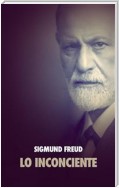Sigmund Freud

Sigmund Freud (German pronunciation: [ˈziːkmʊnt ˈfʁɔʏt]; born Sigismund Schlomo Freud; 6 May 1856 – 23 September 1939) was an Austrian neurologist who became known as the founding father of psychoanalysis.
Freud qualified as a Doctor of Medicine at the University of Vienna in 1881, and then carried out research into cerebral palsy, aphasia and microscopic neuroanatomy at the Vienna General Hospital. He was appointed a University lecturer in neuropathology in 1885 and became a Professor in 1902.
In creating psychoanalysis, a clinical method for treating psychopathology through dialogue between a patient and a psychoanalyst, Freud developed therapeutic techniques such as the use of free association (in which patients report their thoughts without reservation and in whichever order they spontaneously occur) and discovered transference (the process in which patients displace on to their analysts feelings derived from the sexual experiences and fantasies of their childhood), establishing its central role in the analytic process. Freud’s analysis of his own and his patients dreams as wish-fulfilments provided him with models for the clinical analysis of symptom formation and the mechanisms of repression as well as for further elaboration of his theory of the unconscious as an agency disruptive of conscious states of mind. Freud postulated the existence of libido, an energy with which mental process and structures are invested and which generates erotic attachments, and a death drive, the source of repetition, hate, aggression and guilt. In his later work Freud drew on psychoanalytic theory to develop a wide-ranging interpretation and critique of religion and culture.
Psychoanalysis remains influential within psychiatry and across the humanities. As such it continues to generate extensive debate, notably over its scientific status and as to whether it advances or is detrimental to the feminist cause. Regardless of the scientific content of his theories, Freud's work has suffused intellectual thought and popular culture to the extent that in 1939 W. H. Auden wrote, in a poem dedicated to him: "to us he is no more a person / now but a whole climate of opinion / under whom we conduct our different lives".
Freud was born the first of eight children to Jewish Galician parents in the Moravian town of Příbor (German: Freiberg in Mähren), Austrian Empire, now part of the Czech Republic. His father, Jacob Freud (1815–1896), was a wool merchant, 41 years old when Freud was born, who had been married twice before and already had two children. Jacob's family were Hassidic Jews, and though Jacob himself had moved away from the tradition, he came to be known for his Torah study. He and Freud's mother, Amalia (née Nathansohn), 20 years her husband's junior, were married by Rabbi Isaac Noah Mannheimer on 29 July 1855. They were struggling financially and living in a rented room, in a blacksmith's house at Schlossergasse 117 when their son Sigmund was born. He was born with a caul, which his mother saw as a positive omen for the boy's future.
 čeština
čeština Deutsch
Deutsch français
français magyar
magyar polski
polski русский
русский English
English Azərbaycan
Azərbaycan беларуская
беларуская italiano
italiano ქართული
ქართული қазақ
қазақ Nederlands
Nederlands português
português slovenčina
slovenčina 中文
中文 español
español






















